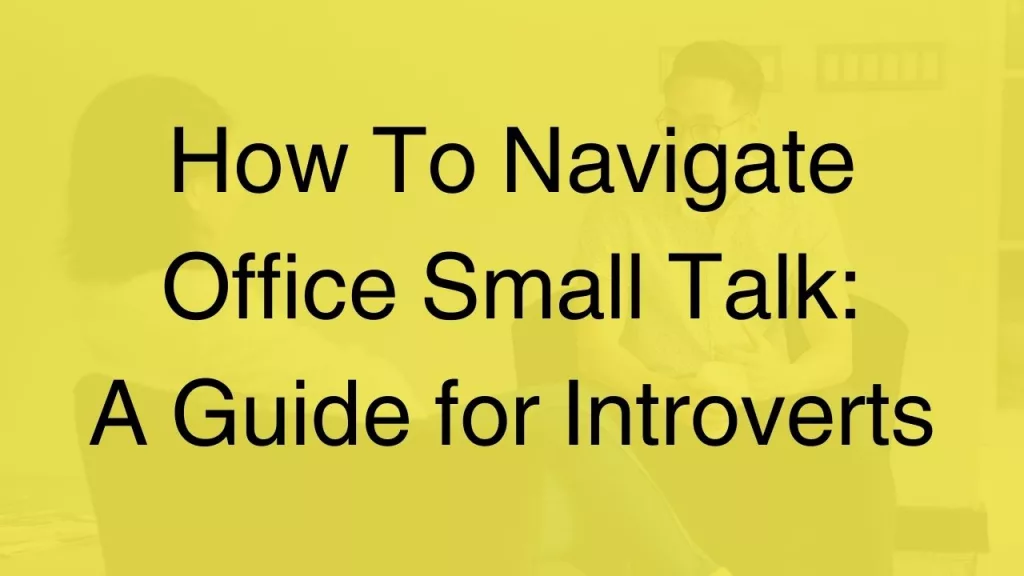Navigating the world of office small talk can be tricky, especially for those who prefer more meaningful connections and profound conversation. The requirement for frequent chitchat can become overwhelming and hard to navigate.
However, small talk, for all its downsides, is essential. It’s the basis on which deeper connections with colleagues are formed. It is the stepping stone to meaningful friendships and relationships.
5 Ways to Improve Your Small Talk Game
Let’s explore strategies on how to navigate office small talk for introverted personalities.
1. Accept Your Introversion:
Accepting and embracing your introverted nature is crucial to navigating small talk effectively. Being an introvert does not mean you are bad at small talk – that’s not what introversion is – but rather that these conversations will come less naturally to you and may drain your energy levels. You may find it harder to share personal stories and experiences effortlessly. By acknowledging and accepting your unique personality traits, you are in a better position to approach office interactions with a positive and realistic mindset.
2. Find Similar Interests:
When making small talk, looking for topics that genuinely interest you is important. Though you shouldn’t change the topic just to suit yourself, having a conversation on a subject you enjoy is more likely to bring out your social side. Relevant topics include books, movies, sports, music, current events, and news. By steering the conversation toward topics you care about, you can create more engaging interactions and take more joy from the small talk conversations you experience.
3. Try Active Listening:
In any conversation, active listening is crucial. Rather than listening to respond, you are listening to hear, understand and then reply. When conversing with your colleagues, focus on genuinely hearing and understanding what they say. Better yet, ask open-ended questions that encourage them to share more. This is respectful, deepens the conversation, and demonstrates your interest in the subject and the other person. Better yet, by delving into their stories and experiences, you can keep the spotlight away from your own.
4. Set Healthy Boundaries:
Introverts draw their energy from solitude and quiet environments. Social interactions, including small talk, can be draining. That is why it’s important to establish boundaries and prioritise self-care. If you are not in the right mindset for small talk, it is perfectly okay to excuse yourself and exit the conversation politely. By respecting your needs and setting boundaries, you can ensure that you engage in small talk when you are mentally prepared to do so and create a more harmonious balance between social interactions and moments of solitude.
5. Recognise Conversation Cues:
Understanding conversation cues is essential to end your small talk conversation gracefully. Pay attention to signals such as pauses in the dialogue, a change of topic, or body language that indicates disinterest or distraction. When these signs arise, the conversation may be reaching its natural end. If these signs occur, it may be time to wrap up the conversation and allow both parties to move on with their day without any pressure or guilt. This also creates respect and fosters the opportunity for positive interactions in the future.
Conclusion:
As an introvert, navigating office small talk can be challenging, but it doesn’t have to be a source of constant discomfort. By following the above guidelines, you can create a healthy balance between small talk, meaningful conversations and quiet reflection at the office.
More information on mastering the art of small talk can be found on the Toastmasters International website.
How is your small talk game? Would you add anything to the above list?



